Today’s presentation at CTAD, a leading international Alzheimer's conference, expands research supporting the value of ultra-low-field MRI in monitoring amyloid-related imaging abnormalities (ARIA).
Hyperfine Announces Alzheimer’s Research with Promising Swoop® System Data and Advanced Image Quality
Media Contact
Dana Schroeder
Health+Commerce
dana@healthandcommerce.com
Investor Contact
Marissa Bych
Gilmartin Group LLC
marissa@gilmartinir.com
Hyperfine, Inc. (Nasdaq: HYPR), the groundbreaking health technology company that has redefined brain i
maging with the first FDA-cleared portable magnetic resonance (MR) brain imaging system—the Swoop® system—today announced the presentation of additional research data and images using the Swoop® system to image patients with Alzheimer’s disease who are part of the observational, investigator-initiated CARE PMR study.
This press release features multimedia. View the full release here: https://www.businesswire.com/news/home/20241031241209/en/
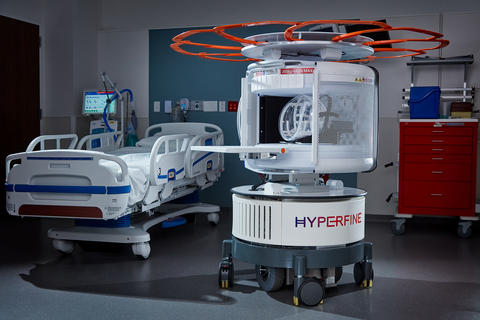
The Swoop® Portable MR Imaging® System (Photo: Business Wire)
The Swoop® system is gaining international exposure, with growing evidence supporting the use of Swoop® system images to help in the detection of amyloid-related imaging abnormalities (ARIA-E) when monitoring Alzheimer’s patients receiving amyloid-targeting therapy. Recent presentations at significant Alzheimer’s meetings, including the Alzheimer’s Association International Conference (AAIC) in Philadelphia, AAIC in Tokyo, and the Clinical Trials on Alzheimer’s Disease (CTAD) conference in Madrid (presented on October 31st), have showcased the potential value of the Swoop® system in Alzheimer’s patient management.
The presentation today at CTAD featured research from Washington University in St. Louis, a leading center in Alzheimer’s disease research using ultra-low-field MR imaging with the Swoop® system and an actively enrolling center in the CARE PMR study. The authors shared their experiences using Swoop® system images to detect ARIA-E in patients undergoing Lecanemab therapy. The presentation showcased multiple cases comparing images obtained with the ultra-low-field Swoop® portable MR brain imaging system with images from a high-field 3 tesla MRI scanner. The Swoop® system images, processed using the latest advancements in AI-driven research software, demonstrated impressive image quality that shows promise for use in assisting physicians in detecting ARIA-E.
The presentation conclusions stated that the Swoop system “presents a promising and cost-effective alternative to the conventional 3T MRI, with the added advantage of workflow optimization.” Further, the authors noted, “This study highlights the potential of innovative imaging technologies to advance patient care and monitor neurodegenerative conditions.”
The CARE PMR (Capturing ARIA Risk Equitably with Portable MR) study is a collection of data from multiple sites assessing the clinical utility and workflow benefits of using Swoop® system images to detect amyloid-related imaging abnormalities (ARIA) in Alzheimer’s patients receiving amyloid-targeting therapy.
Dr. Edmond Knopp, Chief Medical Officer at Hyperfine, expressed his enthusiasm for the ongoing research. He stated, “I want to congratulate Washington University for their leadership in Alzheimer’s research, particularly with the use of portable MR brain imaging. The impressive image quality achievable with our ultra-low-field MRI technology opens up the potential to enable the ability to provide critical diagnostic information for patients with Alzheimer’s disease across many sites of professional care, including infusion centers and clinics that currently cannot offer on-site imaging capabilities. These presentations provide early evidence that portable MRI could transform Alzheimer’s disease management.”
For more information about the Swoop® Portable MR Imaging® system, please visit hyperfine.io.
About the Swoop® Portable MR Imaging® System
The Swoop® Portable MR Imaging® system is U.S. Food and Drug Administration (FDA) cleared for brain imaging of patients of all ages. It is a portable, ultra-low-field magnetic resonance imaging device for producing images that display the internal structure of the head where full diagnostic examination is not clinically practical. When interpreted by a trained physician, these images provide information that can be useful in determining a diagnosis. The Swoop® system also has CE certification in the European Union and UKCA certification in the United Kingdom. The Swoop® system is commercially available in a select number of international markets.
About Hyperfine, Inc.
Hyperfine, Inc. (Nasdaq: HYPR) is the groundbreaking health technology company that has redefined brain imaging with the Swoop® system—the first FDA-cleared, portable, ultra-low-field, magnetic resonance brain imaging system capable of providing imaging at multiple points of professional care. The mission of Hyperfine, Inc. is to revolutionize patient care globally through transformational, accessible, clinically relevant diagnostic imaging. Founded by Dr. Jonathan Rothberg in a technology-based incubator called 4Catalyzer, Hyperfine, Inc. scientists, engineers, and physicists developed the Swoop® system out of a passion for redefining brain imaging methodology and how clinicians can apply accessible diagnostic imaging to patient care. For more information, visit hyperfine.io.
The Hyperfine logo, Swoop, and Portable MR Imaging are registered trademarks of Hyperfine, Inc.
Forward-Looking Statements
This press release includes “forward-looking statements” within the meaning of the “safe harbor” provisions of the Private Securities Litigation Reform Act of 1995. Actual results of Hyperfine, Inc. (the “Company”) may differ from its expectations, estimates and projections and consequently, you should not rely on these forward-looking statements as predictions of future events. Words such as “expect,” “estimate,” “project,” “budget,” “forecast,” “anticipate,” “intend,” “plan,” “may,” “will,” “could,” “should,” “believes,” “predicts,” “potential,” “continue,” and similar expressions (or the negative versions of such words or expressions) are intended to identify such forward-looking statements. These forward-looking statements include, without limitation, the Company’s goals and commercial plans, the benefits of the Company’s products and services, and the Company’s future performance and its ability to implement its strategy. These forward-looking statements involve significant risks and uncertainties that could cause the actual results to differ materially from the expected results. Most of these factors are outside of the Company’s control and are difficult to predict. Factors that may cause such differences include, but are not limited to: the success, cost and timing of the Company’s product development and commercialization activities, including the degree that the Swoop® system is accepted and used by healthcare professionals; the impact of COVID-19 on the Company’s business; the inability to maintain the listing of the Company’s Class A common stock on the Nasdaq; the Company’s inability to grow and manage growth profitably and retain its key employees; changes in applicable laws or regulations; the inability of the Company to raise financing in the future; the inability of the Company to obtain and maintain regulatory clearance or approval for its products, and any related restrictions and limitations of any cleared or approved product; the inability of the Company to identify, in-license or acquire additional technology; the inability of the Company to maintain its existing or future license, manufacturing, supply and distribution agreements and to obtain adequate supply of its products; the inability of the Company to compete with other companies currently marketing or engaged in the development of products and services that the Company is currently marketing or developing; the size and growth potential of the markets for the Company’s products and services, and its ability to serve those markets, either alone or in partnership with others; the pricing of the Company’s products and services and reimbursement for medical procedures conducted using the Company’s products and services; the Company’s estimates regarding expenses, revenue, capital requirements and needs for additional financing; the Company’s financial performance; and other risks and uncertainties indicated from time to time in Company’s filings with the Securities and Exchange Commission, including those under “Risk Factors” therein. The Company cautions readers that the foregoing list of factors is not exclusive and that readers should not place undue reliance upon any forward-looking statements, which speak only as of the date made. The Company does not undertake or accept any obligation or undertaking to release publicly any updates or revisions to any forward-looking statements to reflect any change in its expectations or any change in events, conditions or circumstances on which any such statement is based.
View source version on businesswire.com: https://www.businesswire.com/news/home/20241031241209/en/
 Business wire
Business wire 
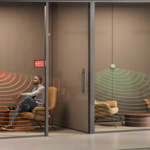
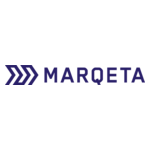
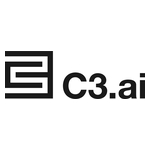

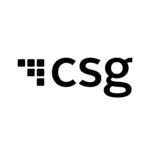
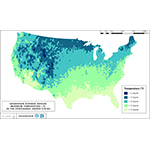
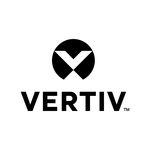
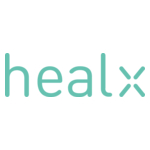



Add Comment